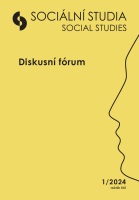
KONOPÁSEK, Z. (2024): Věda a politika, vpravo, vlevo. Sociální studia, 21 (1): 33-38. Dostupné na adrese: https://doi.org/10.5817/SOC2023-33647
::::Pavel Barša svůj text "Pragmatická sociologie emancipace: Latour vs. Boltanski" pointuje úvahami o tom, že Latourovi není blízká ani revoluční levice, ani krajní konzervatismus. Pomáhá si přitom zejména tím, že ho brání před tím, co jsem nedávno napsal o jedné Latourově knize. Podle Barši v tomto textu Latourovi vyčítám jeho politické angažmá. Kritizuji ho za příklon k levici a odkazuji ho do sféry čisté, akademické vědy. Avšak přestřelil jsem prý… Problém je v tom, že mi Barša vkládá do úst, co jsem nikdy neřekl. Latourovi jsem nikdy nevyčítal politický rozměr jeho textů. Už vůbec jsem mu nevyčítal levicovost. A rozhodně mi nejde o to ho „skolit“. Ještě bizarnější ale je, že ten, kdo mi falešně podsouvá kritiku Latoura kvůli tomu, že se ukázal jako „levičák“, mne otevřeně kritizuje kvůli tomu, že jsem se ukázal jako „pravičák“ (je to totiž právě tahle škatulka, která dle Barši vysvětluje moje omyly a mou údajnou nenávist vůči Latourovi). V textu se snažím obhájit, že cit pro jemnost a ambivalence není nic výlučně akademického a že „relativistické“ uvažování je ještě něco jiného než jen výhodné palivo pro konzervativní agendu (jak naznačuje Barša).

KONOPÁSEK, Z. / SONERYD, L. / SVAČINA, K. (2018): Lost in translation: Czech dialogues by Swedish design. Science & Technology Studies, 31 (3): 5-23
::::This study explores the journey of a model for stakeholder involvement called RISCOM. Originally developed within the field of radioactive waste management in Sweden, it was later used in the Czech Republic to re-establish public dialogue in the process of siting a geological repository. This case offers an opportunity to empirically study the fragility and ambiguous results of organized spread of public involvement across various domains of technological innovation and national contexts. We show how three circumstances – (1) the ambition to make RISCOM an internationally used model for public dialogue, (2) the specific situation in the Czech siting process, and (3) the short-lived and limited success of the subsequent Czech dialogues by Swedish design – were intrinsically related and sustained each other. Better understanding of such complexities might contribute to a more realistic attitude toward technologized democracy, i.e., toward practices of public deliberation increasingly becoming instrumental, transferable, and depoliticized.
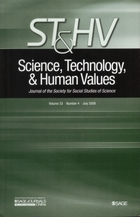
KONOPÁSEK, Z. / STÖCKELOVÁ, T. / ZAMYKALOVÁ, L. (2008): Making pure science and pure politics: On the expertise of bypass and the bypass of expertise. Science, Technology & Human Values, 33 (4): 529-553
::::This paper is based on a case study of a long-term public controversy over the construction of a highway bypass (around Plzen, Czech Republic). Two principal variants of the bypass were proposed. One of them began gradually to appear preferable, increasingly attractive for experts, but remaining only on paper. In the meantime, however, the other variant became more realistic, pushed through mainly by local politicians and actually constructed. We show how purification of science from politics (and vice versa) played a key role in the development and ending of the case. Initial expertisation of the case switched to its sharp politicization, when people got frustrated from protraction and indecisive evidence of accumulated expertise. This turned to be fatal for those who consistently staked everything on "pure facts". We conclude by outlining some general consequences of such a development for both democratic decision making and the political relevance of expertise.
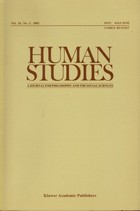
KONOPÁSEK, Z. / KUSÁ, Z. (2006): Political screenings as trials of strength: Making the communist power/lessness real. Human Studies, 29 (3): 341-362
::::In this paper we discuss the problem of communist power in so called totalitarian regimes. Inspired by strategies of explanation in contemporary science studies and by the ethnomethodological conception of social order, we suggest that the power of communists is not to be taken as an unproblematic source of explanation; rather, we take this power as something that is itself in need of being explained. We study personal narratives on political screenings that took place in Czechoslovakia in 1970 and analyze how the power of communists obtained its strength from ordinary and “unremarkable” interactions between participants. The screenings are interpreted, in the terms of Bruno Latour, as “trials of strength.” We show that it was crucial for all the participants that associations, translations or mobilizations involved in making the regime real, remained partial and multiple, and not exclusive and “total” as is often assumed within dominant discourses on totalitarianism.
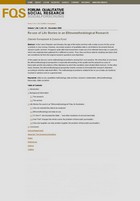
KONOPÁSEK, Z. / KUSÁ, Z. (2000): Re-use of life stories in an ethnomethodological research. Forum Qualitative Sozialforschung / Forum: Qualitative Social Research, 1 (3): 42 odst, čl. 24. Dostupné na adrese http://nbn-resolving.de/urn:nbn:de:0114-fqs0003248
::::In the Czech Republic and Slovakia, the age of life history archives with a wider access for the social scientists is only coming. However, secondary analysis of qualitative data is not limited to documents that are stored in public archives. It happens quite often that researchers make use of an interview transcript, or a part of it, which has originally been gathered for a different occasion. Thus, they use these data for studying new topics that are sometimes far from the original research questions and objectives. In this paper we discuss some methodological problems arising from such practice. We show that, on one hand, the ethnomethodological perspective is especially demanding on the quality and the pinpoint accuracy of transcripts and the descriptions of the interviews by which the narratives were elicited (field memos). On the other hand, however, the ethnomethodological perspective orients scholars to formulate their research objectives according to what the data itself offers. The methodological problems related to the re-use of data can hardly be resolved in advance and on a general level.
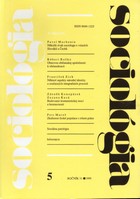
KONOPÁSEK, Z. / KUSÁ, Z. (1999): Budovanie komunistickej moci a bezmocnosti. Sociológia, 31 (5): 459-480
::::This paper turns attention to the period of state socialism. Its aim is to suggest and illustrate a theoretical and analytical framework for making the communists" power problematic from sociological point of view. We would like to promote such a perspective in which the power of communists is not taken - explicitly or implicitly - as something that explains the logic of life under the communist regime; rather, on the contrary, we present it as something that needs to be explained. As such, our approach is inspired by contemporary sociology of science, above all by authors such as Bruno Latour and John Law whose effort is in many respects similar to ours. After a theoretical outline of the approach, we perform its modest practical illustration. We use short extracts from two biographical narratives for an analysis of one particular situation in which the communist power played an important role: the political screenings that followed the military invasion into Czechoslovakia at the end of so called Prague Spring. The screenings are interpreted, in this analytical sketch, as "trials of strength" as well as "real transformations" both of the communist regime itself and all its actors. Above all, we focus on the moments when somebody or something was transformed into a fulcrum, an indisputable and stable entity, or, on the other hand, into a questionable, not-quite-real, because negotiable and reversible network of relations. These moments help us to show the heterogeneous and often surprisingly subtle sources of the political power that constituted state socialism and made it durable.
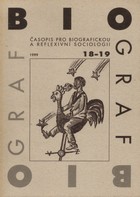
KONOPÁSEK, Z. (1999): Od Černé knihy k černé skříňce: komunismus relativizujícíma očima. Biograf (18-19): 3-24
(18-19): 3-24
::::This paper proposes a sociology of state socialism. It does so by discussing the place of state socialism within the debates on modernity and postmodernity and reassessing the possibilities of so-called biographical research in the field of post-communist studies. The paper also outlines a theoretical and analytical framework for making the communists[a] power problematic from a sociological point of view. Such a perspective suggests that the power of the communists is not taken - explicitly or implicitly - as something that naturally explains the logic of life under the communist regime; on the contrary, it is presented as something that needs to be explained. As such, this approach is inspired by contemporary sociology of science, particularly by the work of Bruno Latour. In doing so, the paper hopes to achieve one important side-effect, namely to (re)establish the phenomena of state socialism as a topic worthy of general sociological attention.
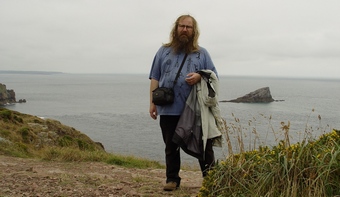
 ? - recenze vyjde v časopise Biograf
? - recenze vyjde v časopise Biograf
 se objevily informace o tom, co lze snad prý během března čekat v nové, sedmé verzi mého oblíbeného analytického programu
se objevily informace o tom, co lze snad prý během března čekat v nové, sedmé verzi mého oblíbeného analytického programu






